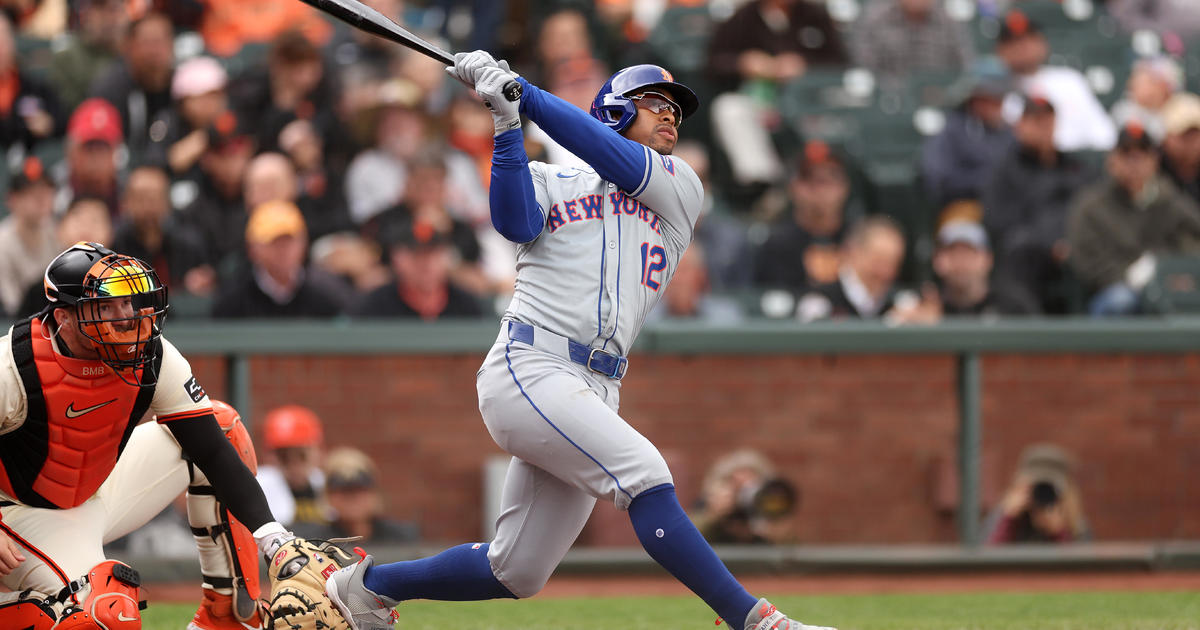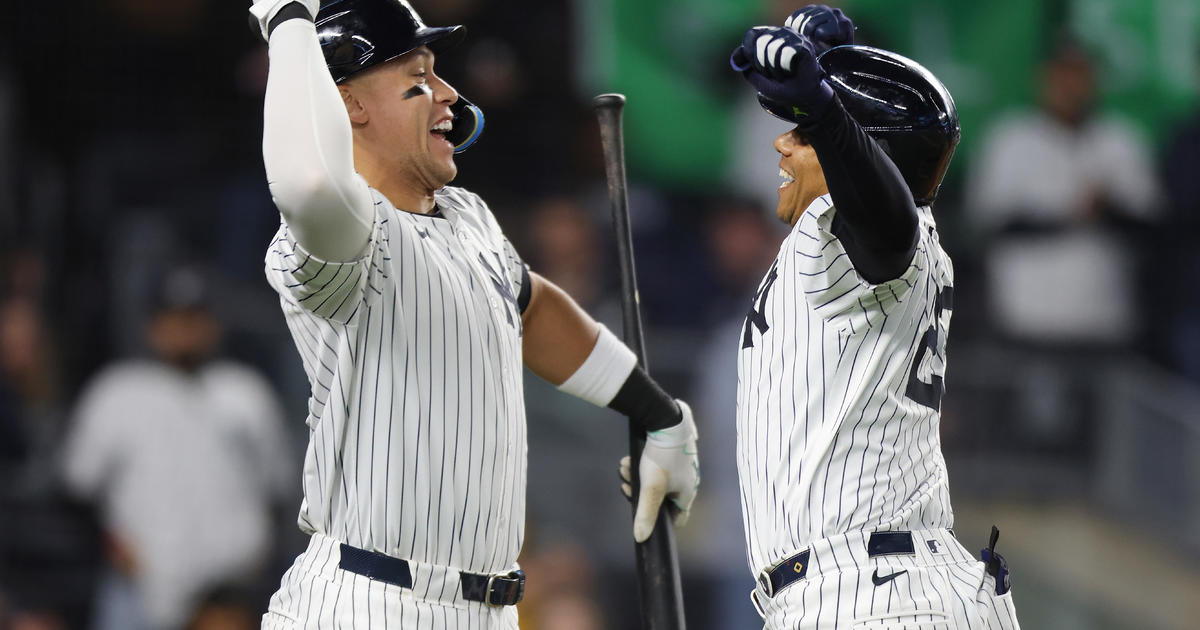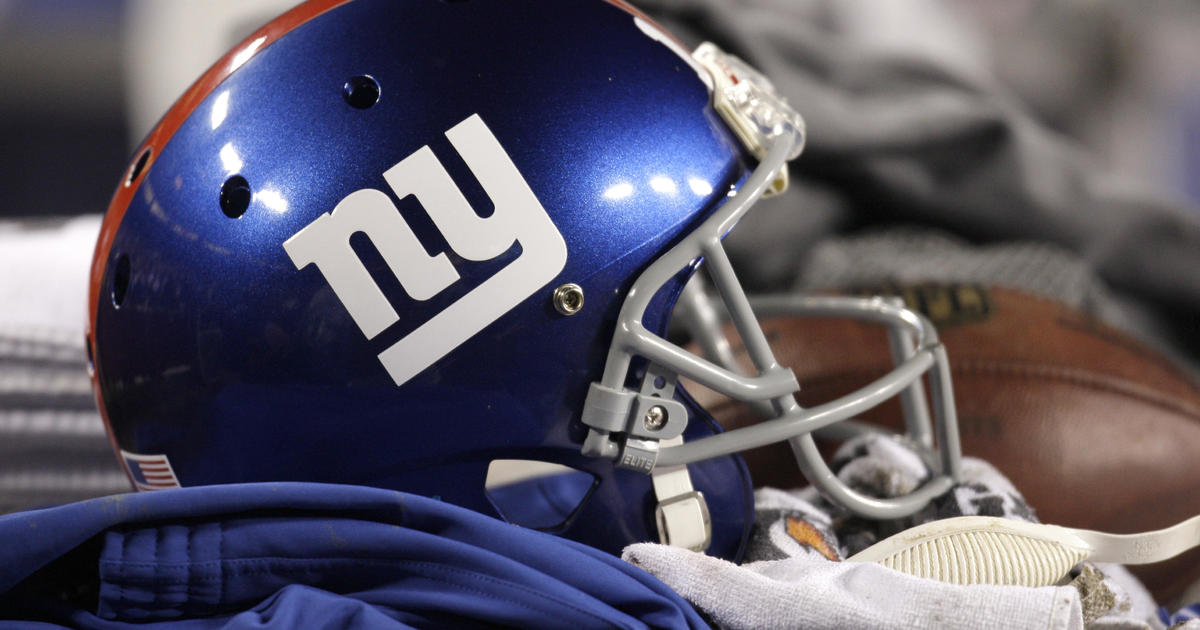Mets' Collins: Ike Davis Should Have Spoken Up About Injury
PORT ST. LUCIE, Fla. (CBSNewYork/AP) — New York Mets manager Terry Collins says last season could have gone differently for Ike Davis if only the embattled first baseman admitted he was dealing with a nagging oblique injury.
"As I look back now, everything would have been better off had he said something," Collins said Monday. "Certainly, hopefully, he'll learn from it that he needs to speak up."
Speaking Monday, Davis confirmed a story that first appeared Sunday on the New York Post's website. Davis admitted he concealed an oblique strain from the team last year but claimed the injury wasn't a factor in his poor performance.
"It's just an overblown thing. Everyone has injuries and then they get hurt. So it was pointless to write an article," Davis said. "I sucked last year because I sucked. It's not because I had an injury. You always have injuries. And now it just looks bad. I didn't want the article to come out, and it did."
Ike Davis On Injury
Collins said he was "as surprised as anybody" when he heard that Davis had been playing with an injury. Collins said he will address the situation privately with Davis.
"If you're failing at what you're supposed to be doing, something needs to be addressed," Collins said. "If you feel it's taking away from your game, you've got to say something."
Davis was angry about the Post article and confronted its author, Mike Puma, who later fired back with a zinger on WFAN radio: "There's a joke in there somewhere — if he takes a swing at me, he might miss."
Mike Puma on Ike Davis
Davis hit a career-low .205 with nine homers and 33 RBIs last year. He batted .161 with five homers and 16 RBIs at the season's start, was sent to Triple-A Las Vegas from June 10 to July 5 and then hit .267 after his recall. He left an Aug. 31 game at Washington because of the oblique injury and missed the final month of the season.
Davis twice said the initial oblique injury had no bearing on his swing and added players constantly have injuries to deal with.
"You can't tell people stuff because you won't play," he said. "You always hurt. You always hurt. ... You hurt all the time. You can't tell people — unless you can't physically actually go out and play — you can't say anything. So that's what we do, and we have injuries that last a little longer or they don't. What am I going to do? Not play? It doesn't make sense."
Collins said that by the end of a baseball season, almost every player receives treatment for an injury, but players should speak up when an injury impacts performance.
"Everybody's different, guys deal with stuff in different ways," Collins said. "If there's an issue we need to know about it for sure."
Davis said the oblique was bothering him before the game at Washington, when hit he hit a third-inning sacrifice fly, grimaced, grabbed at his side and bent over in foul territory not far from home plate.
"If you hurt something, like your oblique, and it pops, there's a time in-between," he said. "It doesn't automatically go, 'Oh, I'm healthy and then I pop.' There's a time where something hurts. But you can't go, 'Oh, I feel a little something here. It's a little tight. It hurts a little bit.' I can't pull myself from the game."
You May Also Be Interested In These Stories
(TM and © Copyright 2014 CBS Radio Inc. and its relevant subsidiaries. CBS RADIO and EYE Logo TM and Copyright 2014 CBS Broadcasting Inc. Used under license. All Rights Reserved. This material may not be published, broadcast, rewritten, or redistributed. The Associated Press contributed to this report.)



